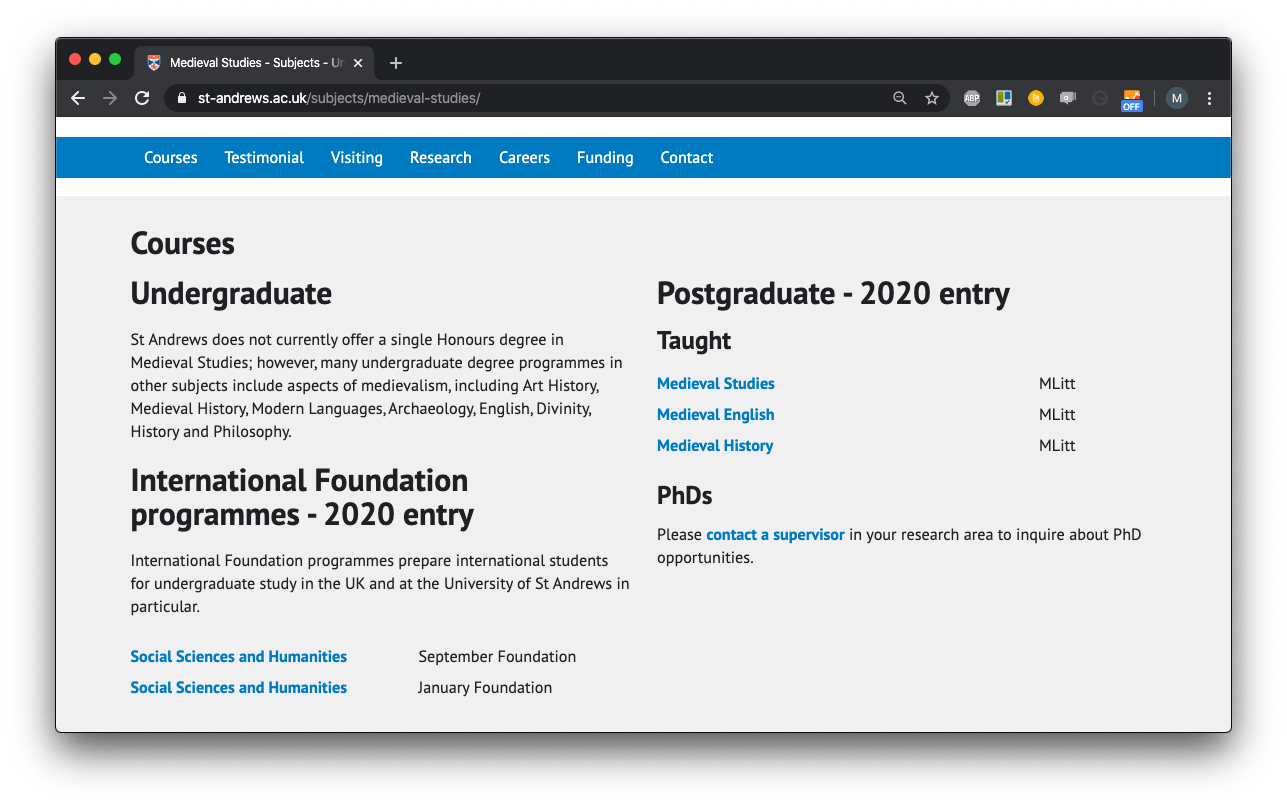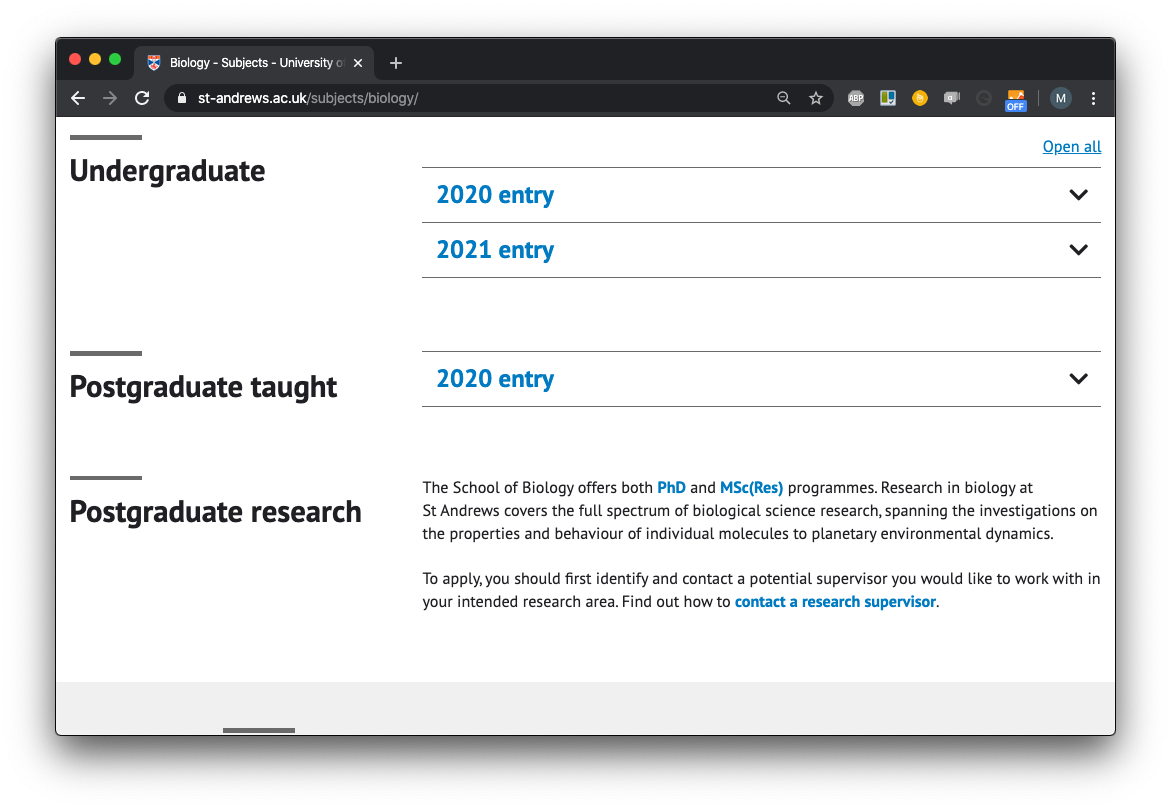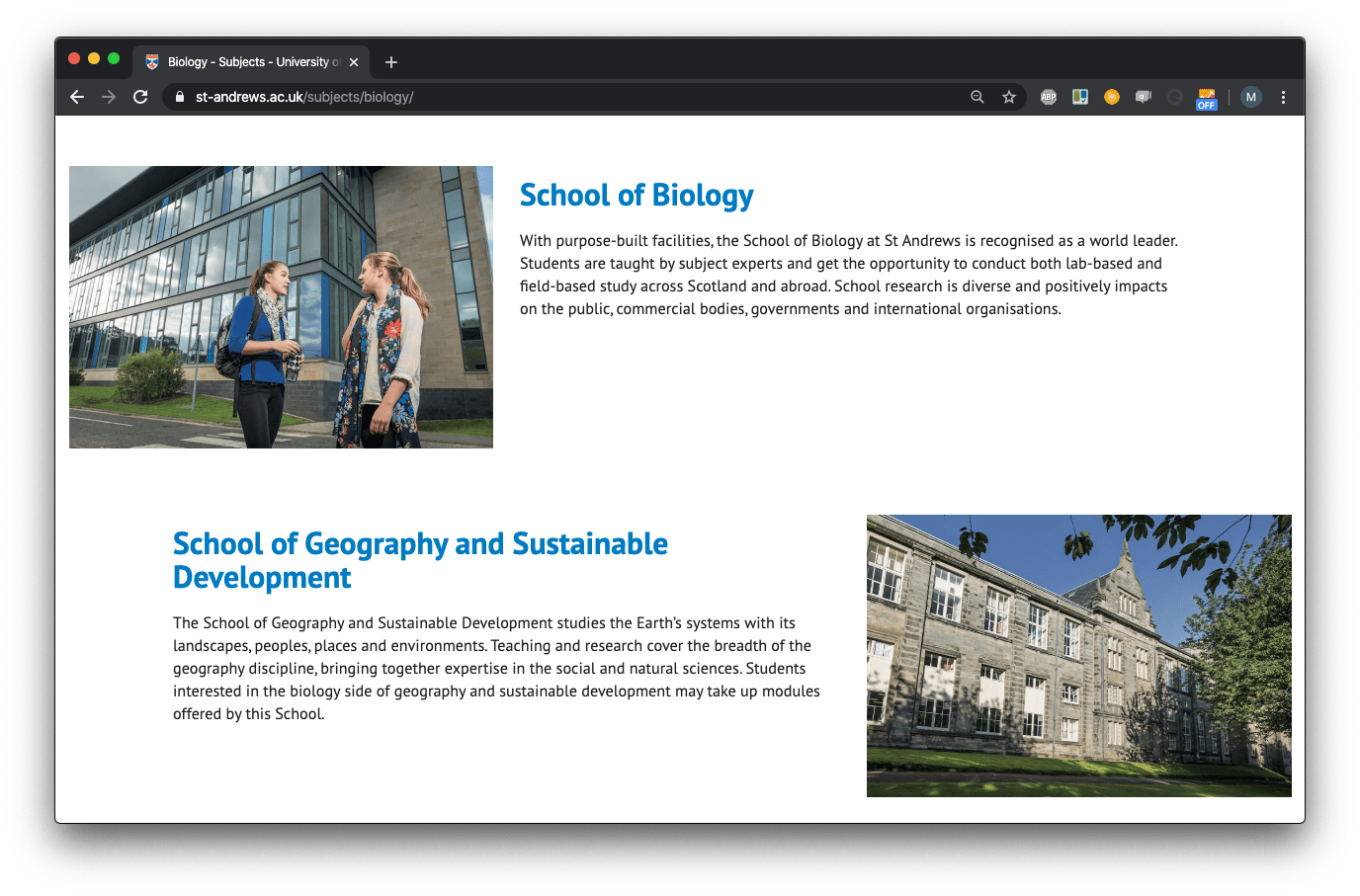New subject page design
Since autumn 2018, the digital communications team has been looking at how to improve the University’s subject pages to better meet users’ needs.
As part of this process, we created a new design for the subject pages. The subject pages act as landing pages for all prospective students who are interested in finding out about the courses related to a particular subject.

Background of the redesign
The subject pages were originally launched in February 2017 but have remained largely unchanged since that time. They were launched before there was a full digital prospectus or new School websites. The content on these pages were due for an update and we wanted to come up with a new and improved design.
To better understand our users, and how they use the subject pages, we gathered data from various sources. We ran a design sprint, conducted a survey, and analysed web analytics. Here are some data highlights:
- The typical user journey showed that subject pages are primarily navigation pages, and users first land on a subject page and then navigate to course pages.
- Users were confused about the difference between subject pages and course pages, and this could negatively affect user experience as they might expect more information to be available on the subject pages.
- The University’s reputation was the top reason respondents were applying (or considering applying) to study at St Andrews.
- When asked how the pages could be improved, respondents wanted to include more visual elements such as images and video, as well as student testimonials.

Improvements of the redesign
We have deliberately removed a lot of content to simplify subject pages and drive users to the course pages where more detailed information is provided. However, if you have images, videos, testimonials, or awards to share, we would love to consider these.
Based on all the data we collected, we decided to improve the subject pages in the following ways:
- Condense page content to make it more concise (and help differentiate it as a landing page rather than a course page). This meant removing the following information and placing it elsewhere:
- Careers – better placed on individual course pages as career options are highly specific to the degree studied.
- Research – better placed on new School websites where users can more easily find research supervisors. This information is also automatically updated on new School sites, whereas it is currently manually maintained on subject pages, meaning they quickly become out of date.
- Funding opportunities – better placed on individual course pages as they tend to be specific to the degree programme.
- New content type to display courses in a cleaner and clearer way.
- New content types to better promote testimonials and awards.
- Ability to add more images and videos in prominent places.
These pages are subject driven and not based on any single School or Department. This is so users don’t have to know the complicated internal structure of the University to find the information they need. Many subjects may have a lead School, but students may be interested in modules or programmes related to the subject that offered by other Schools as well. With this in mind we have included a section which highlights the key Schools involved in delivering the subjects on that page. This is a great opportunity to showcase Schools and drive interested users to the School sites if they require School-specific information.

We have also included standard navigation features at the bottom of each page which take users to entry requirements, fees, accommodation, and visiting pages (this came specifically out of the design sprint prototype and Google Analytics shows these are areas prospective students frequently access as part of browsing the digital prospectus).
We have been updating the existing subject pages in batches over the last few weeks and we are aiming for all pages to be updated before the end of February. If you have any feedback on the design, please comment below or email [email protected].